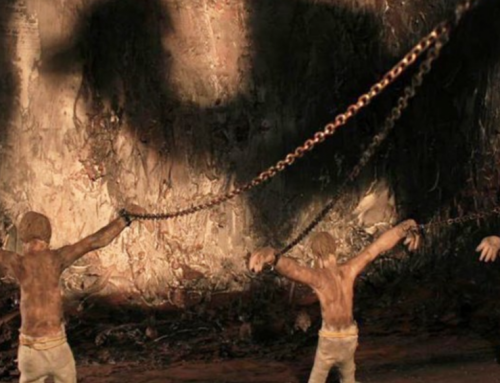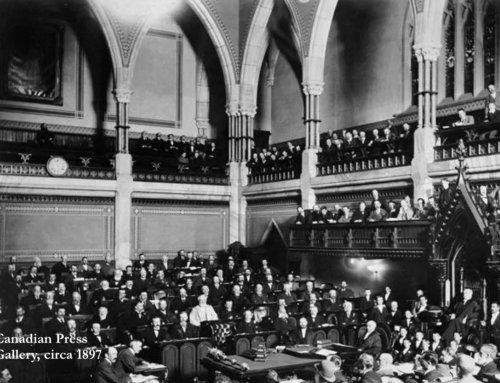and the truth about the presidency of the United States and the state of democracy from the largest nations to the smallest communities?
Five things you might not know
- Donald Trump became the President of the most powerful nation in the world even though only 25% (1-in-4) of American voters voted for him. Of 251 million eligible voters only 138 million voted in the 2017 election (55%)[1] and Trump got 45.9% of those (62,985,105) compared to Clinton’s 48% (65,853,625). In other words, three-out-of-four American voters did not vote for Trump.
- In 2008, Obama’s 69,498,516 votes on a 57.1% turnout, meant that 70% (2-out-of-3) Americans did not vote for him.
- For the last fifty years, American voter turnout has not exceeded 60%.
- Canada has been a little better but almost as apathetic with turnout ranging between 58%-69% since 1993.
- Most small town, local elections rarely have turnout above 50%.
(8 minute read)
“What happens in the next four years will depend heavily on whether Trump is right or wrong about how little Americans care about their democracy and the habits and conventions that sustain it. If they surprise him, they can restrain him.” – David Frum, The Atlantic, March 2017.
When only 25-30% of the citizens elect a leader, “we the people” do not live in a democracy, we live on the edge of an autocracy, built on minority rule and massive public indifference. If that’s okay with you, you can stop reading here. Or you might want to think more about why our nations, states, provinces and small towns are vulnerable to corrupt constituencies and the manipulation of the rule of law to favor the few, not the majority. Unless, of course, you’re a member of the few.
There is no majority rule.
 Apathy
Apathy
Voter turnout in the US has not been above 70% since Theodore Roosevelt ran in 1900 (73%). Can you imagine how much more representative the democracy would be if today’s turnout was 70%? How about matching the 81% when Lincoln ran in 1860? Today, 81% would be 203 million American voters (60 million more people participating and perhaps a chance for the president to have a valid mandate). In Canada, in 2015, a whopping 68.5% voted in the federal election, but that’s still more than 8 million of 25 million voters not showing up.
Almost half the citizens sitting on their apathetic butts is not democracy, it’s minority interests (25%) dictating outcomes. Apathy ignores this reality and it doesn’t become obvious until someone as crudely autocratic and frighteningly unstable as Donald Trump uses his 25% victory to push a so-called mandate.
Most glaring is the lack of conversation about this fundamental fact of democracy. Few, if any, pundits comment on the 25%. Few question the lack of representative democracy. No one discusses the dearth of citizen participation. And politicians whistle past the graveyard of democracy hoping the ghosts of Jefferson, Adams and Sir John A. MacDonald don’t start an uprising.
Of course, change is not likely because for most people apathy is a deep rooted human condition, just as patriotism is a thin, feel-good veneer.
Lately, the talking-heads have been blathering about “American exceptionalism” – mainly in opposition to Trump’s pandering to Russia – but they never mention the unexceptionalism embedded in the non-representative reality of so-called representative government.
- U.S. voter turnout is 31st among the 35 countries in the Organization for Economic Cooperation and Development.
- Canada is 18th.
- Mexico 16th.
- Australia in 2016 had a 91% turnout.
- Belgium 87.2%, Turkey 84.3%, and Sweden 82.6%.
- Russia in 2016 was 47.9 percent.
- Greece, the birthplace of democracy, despite having a compulsory-voting law (though not enforced), has had turnout fall from 89% in 2000 to 62% in 2015.
Australia, Belgium, Turkey and Greece are among 25 nations around the world where voting is compulsory (International Institute for Democracy and Electoral Assistance), which is perhaps the only way to off-set apathy, democracy’s flesh-eating disease. Being a citizen has responsibility and if half the people are not going to be responsible then “making” them do what they should do is a good idea – give up a little freedom in order to maintain freedom.
“A smaller and smaller slice of the electorate are making decisions that are important.” – David Becker, Center for Election Innovation and Research
How to Build an Autocracy – a must read
The combination of apathy, minority rule and unchecked power can become a runaway train to autocracy, a form of government that we have spent blood and centuries trying to defeat. In the March 2017 issue of The Atlantic, senior editor David Frum, writes what I would call an essay for our times: How to Build an Autocracy. It is a must read!

photo courtesy The Atlantic
“Yet the American system is also perforated by vulnerabilities no less dangerous for being so familiar. Supreme among those vulnerabilities is reliance on the personal qualities of the man or woman who wields the awesome powers of the presidency. A British prime minister can lose power in minutes if he or she forfeits the confidence of the majority in Parliament. The president of the United States, on the other hand, is restrained first and foremost by his own ethics and public spirit. What happens if somebody comes to the high office lacking those qualities?” – David Frum, The Atlantic, March 2017.

David Frum is a Canadian-American neoconservative political commentator. He was a speechwriter for President George W. Bush, and is now a senior editor at The Atlantic and a CNN contributor. Frum is the son of the extraordinary Canadian journalist Barbara Frum.
Millions have already read Frum’s vivid painting of a frightening landscape of what the future could look like under a Trump Administration. Frum’s subheading is a harbinger: The preconditions are present in the U.S. today. Here’s the playbook Donald Trump could use to set the country down a path toward illiberalism.
This essay is for anyone who gives a damn about understanding the precarious nature of a democracy and how it is driven to feed minority interests. Today, Trump threatens the last frayed thread of democracy, not because of ideological differences but because of a gutting of founding principles. The American political system was not designed to be completely democratic. The founding fathers did not believe – did not trust – that a majority of the people could make the right decisions. Alexander Hamilton once referred to the people with adamant caution when he said, “Beware the beast.” Today, the pejorative is, “the moron majority.” Back then they were wary of the “beast” having a majority rule; therefore, they created a system that required a body of men, senators, who would provide balance and oversee the governing from a higher level of wise discernment. James Madison said that “senatorial trust” called for a “greater extent of information and stability of character.” Originally, senators were selected by the state legislatures, not by popular elections. Also, the separation of powers (i.e., “checks and balances,” which Frum aptly claims is “a metaphor, not a mechanism.”), and the Electoral College were put in place for the same reason – distrust. Distrust in what Mark Twain called, “the damn human race.”
“Our reluctance to see democracy for what it is follows from the dream of perfection reflected in the department-store windows of a self-glorifying second Gilded Age … the calamity of what was the collision of the democratic ideal with democratic reality, the warm promise of a generous experiment run aground on the reef of destruction that is the damned human race.” – Lewis Lapham, Age of Folly
All politics is local
The University of Wisconsin researched elections data covering 144 U.S. cities and found a decline in voter turnout between 2001-2011: An average of 26.6% of voting-age population cast ballots in 2001, and by 2011 it was below 21%. Long-term trends show voter interest continues to wane. In Canada, voter turnout in municipal elections is rarely above 50%, and considerably lower than turnout in federal elections.
“All politics is local” is a popular meme first coined by Byron Price (Washington AP bureau chief) in 1932 and used again by Tip O’Neill in 1935, but whether it is applicable today is open to question. One thing is clear, local politics is less democratic than it has ever been and yet, you would think that politics would work best at the local level, especially in small towns. After all, in smaller communities it’s logical that residents can get to know elected officials. Some of them are neighbors. They bump into each other around town. They’re all in the same boat, so to speak, rising or sinking with the tide. And they should be able to cut through the complexity and bullshit of politics. But the reality is that most small town politics is very disengaged.
Disengagement – the dry rot in the good ship democracy
Disengagement eats away at the foundations of our institutions, particularly democracy, as it breeds apathy and ignorance. In his book, The Great Degeneration, Niall Ferguson cites Alexis de Tocqueville and his historic book, Democracy in America (published 1835). Among many prescient quotations, here are two: the first as Tocqueville observed the will of citizens; the second as he saw the curse of disengagement and self-interest.
“… the one where they have taken most advantage of association and where they have applied that powerful mode of action to a greater diversity of objects. Independent of the permanent associations created by law under the names of townships, cities and counties, there is a multitude of others that owe their birth and development only to individual will … In the United States they associate for the goals of public security, of commerce and industry, of morality and religion. There is nothing the human will despairs of attaining by the free action of the collective power of individuals.” – Alexis de Tocqueville [2]
“I see an innumerable crowd of like and equal men who revolve on themselves without repose, procuring the small and vulgar pleasures with which they fill their souls. Each of them, withdrawn and apart, is like a stranger to the destiny of all others: his children and his particular friends form the whole human species for him; as for dwelling with his fellow citizens, he is beside them, but he does not see them; he touches them and does not feel them; he exists only in himself and for himself alone …” – Alexis de Tocqueville [3]
“Tocqueville saw America’s political association,” states Ferguson, “as an indispensable counterweight to the tyranny of the majority in modern democracy.” Today, it is the tyranny of the minority.
To all who will see it, to all who will face reality, America – and Canada – have sadly and pathetically moved from “the collective power of individuals” that used to check tyranny to an aggregation of apathy and ignorance where citizens are “withdrawn and apart, like strangers to the destiny of all others.” Edward O. Wilson, world renowned biologist, claims that humans enjoy their maximum level of Darwinian fitness only when they look after themselves and their offspring, while finding innovative ways to use the societies they live in for their own benefit.[4] That does not bode well for democracy.
As Frum points out, democracy and the president is “restrained first and foremost by his own ethics and public spirit …” [and] “the United States may be a nation of laws, but the proper functioning of the law depends upon the competence and integrity of those charged with executing it.” And he asks: “What happens if somebody comes to the high office lacking those qualities?”
Ideology blinds us to reality
Maybe … maybe, a silver lining can be created from the Trump presidency if he gets some good things done (i.e., jobs, infrastructure) before making any major mistakes (i.e., Russia, China, Iran, North Korea, Mexico). But it’s one helluva, high-risk gamble – a bet only 25% of Americans decided to make. But we all have a dog in the race.
The tortoise and the hare
 One of our problems is that most of us are like the rabbit in Aesop’s fable, The Tortoise and the Hare, or the fox in Isaiah Berlin’s The Hedgehog and the Fox. The vast majority of us are running around focused on “winning” the day, the year, the career. Or as Tocqueville said, “procuring the small and vulgar pleasures” and existing only for ourselves and ourselves alone. So few leaders focus on the “collective power” of the human will, the pursuit of democratic unity and betting on the indomitable human spirit.
One of our problems is that most of us are like the rabbit in Aesop’s fable, The Tortoise and the Hare, or the fox in Isaiah Berlin’s The Hedgehog and the Fox. The vast majority of us are running around focused on “winning” the day, the year, the career. Or as Tocqueville said, “procuring the small and vulgar pleasures” and existing only for ourselves and ourselves alone. So few leaders focus on the “collective power” of the human will, the pursuit of democratic unity and betting on the indomitable human spirit.
Jim Collins used the hedgehog metaphor in his book, Good to Great, when comparing the performance of good and great companies. He said, “The fox knows many things, but the hedgehog knows one big thing.”[5] So if it works in building a great corporation, why not in building a great democracy? As we bounce from rabbit hole to rabbit hole, the big thing staring us in the face is the reality that democracy continues to sink further and further into the quicksand of apathy. And few care.
“Foxes pursue many things at one time and see the world in all its complexity. They are scattered or diffused, moving on many levels … never integrating their thinking into one overall concept or unifying vision. Hedgehogs, on the other hand, simplify a complex world into a single organizing idea, a basic principle or concept that unifies and guides everything.” – Isaiah Berlin.
Politics is the short-term game; democracy the long game. Politics attracts foxes and rabbits, not leaders who possess the vision, principles, persistence and wisdom of a hedgehog. Also, unfortunately, most corporate leaders are foxes, pursuing short-term gains versus “a single organizing idea” – a higher purpose driven by unifying values, principles, will and individual character.
We need more hedgehogs and tortoises if we are to rip asunder the apathy that has aided and abetted crimes against democracy. And a good place to start is close to home, in small towns, where a handful of hedgehogs can transform democracy into the collective power of the citizens rather than the politicians.
Think about it.
Footnotes:
- Wikipedia footnote 1: Estimate of 138.9 million votes cast and 251.1 million people of voting age. This represents an increase in total votes cast and percentage turnout from the 2012 election (130,292,355 votes cast and 241 million people of voting age).“2016 November General Election Turnout Rates”. www.electproject.org. Retrieved December 17, 2016.
- The Great Degeneration, Niall Ferguson, p. 114
- Ibid, p. 123
- Wilson, Edward O., Interview Harvard University, March 27, 1997.
- Good to Great, Jim Collins, Chapter 5, p.90.







Leave A Comment